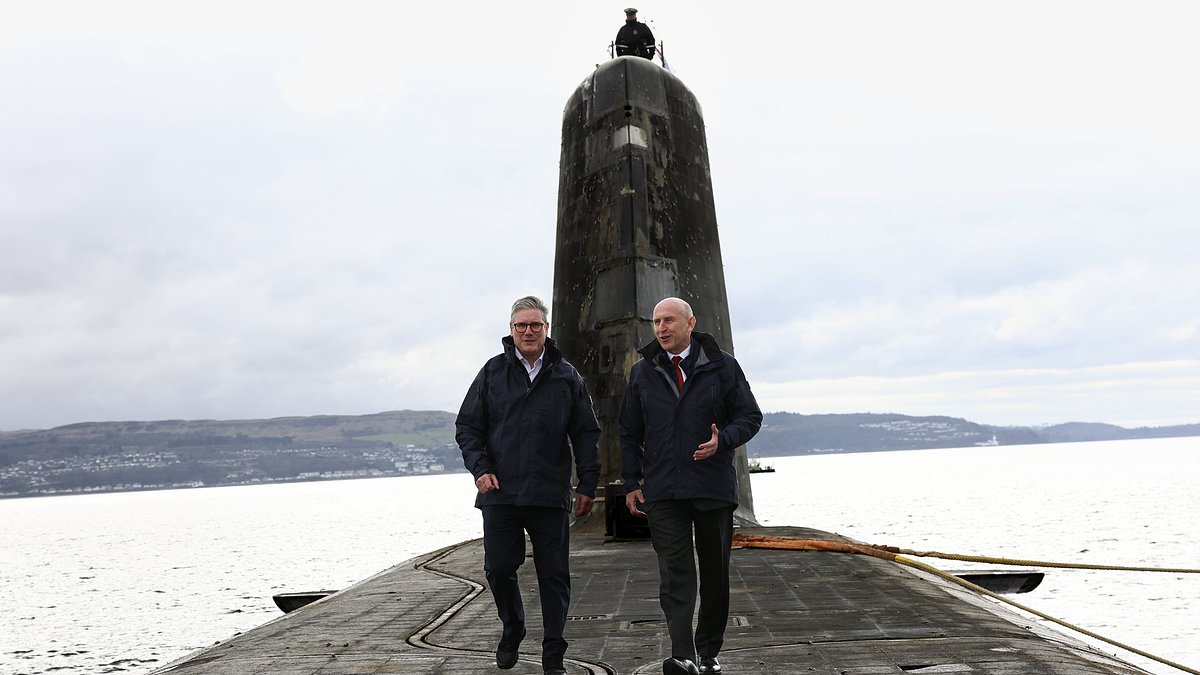Rachel Reeves today poured £2.2bn more into the UK defence Budget amid pressure from Donald Trump and a heightened threat from Russia.
The Chancellor said the UK must ‘move quickly in a changing world’ to up its defence commitment in her Spring Statement in the Commons.
She pledged to ‘boost Britain’s defence industry and to make the UK a defence industrial superpower’.
She also dedicated 10 per cent of the Ministry of Defence’s equipment budget to ‘novel technologies including drones and AI-enabled technology’.
The extra funding is being put on the table as the Government aims to hike defence spending to 2.5 per cent of the UK’s economic output by 2027.
It will take spending to 2.36 per cent next year, with Ms Reeves saying it was the ‘right decision in a more insecure world’.
The UK and other Nato members have been facing pressure from the increasingly hostile Trump administration to up their spending and rely less on the US.
Earlier this week it was revealed vice president JD Vance said he hated ‘bailing Europe out’ and Pentagon chief Pete Hegseth said ‘European freeloading’ was ‘pathetic’.
The comments were made in a Signal group chat to which a journalist was mistakenly invited by the US national security adviser.
Shadow chancellor Mel Stride urged the Chancellor to ‘go further’, adding: ‘The 3 per cent target should be brought forward to this parliament.’
‘So, can I ask (Ms Reeves), given the geopolitical tensions that she has raised, what provision has she made in her headroom, in her fiscal plans, for increasing defence spending more quickly in this parliament, if that proves necessary?
‘And could I ask her, would she scrap the absurd Chagos deal and put that money … behind our armed forces?’
In February Sir Keir announced the Government would increase defence spending to reach 2.5 per cent of GDP by 2027, with a target of upping that further to 3 per cent in the next parliament.
But critics have warned this is not enough to see off the threat from Russia, at a time when the Armed Forces are struggling for manpower and equipment delays.
Lib Dem defence spokeswoman Helen Maguire said: ‘The Chancellor’s announcement of an additional £2.2bn on defence spending is welcome news. However, we believe the Government must go further and faster than 2.5 per cent by 2027. That’s why we are calling for cross-party talks on getting to 3 per cent.’
Ms Reeves told the Commons today: ‘This increase in investment is not just about increasing our national security but increasing our economic security, too. As defence spending rises, I want the whole country to feel the benefits.’
The April funding increase will help pay for new technologies, like long range laser and microwave weapons – collectively known as directed energy weapons – which will be fitted to warships.
Homes for military families will, meanwhile, be refurbished, including the 36,000 recently brought back into public ownership from the private rented sector.
HM Naval Base Portsmouth will also be upgraded with the extra cash, the Treasury said.
Ministers hope to create jobs in manufacturing and technology across the UK as they ramp up defence spending, with the aim of reaching their goal of growing the economy.
Leftie demonstrators gathered on Whitehall to protest against cuts in the Chancellor’s spring statement, calling for ‘welfare not warfare’.
Protesters – from groups including Stop The War Coalition, Disabled People Against Cuts and Socialist Worker – convened outside Downing Street ahead of the statement’s delivery.
They held signs that read: ‘Cuts kill’ and ‘Cut war not welfare’, as well as a large banner saying: ‘Welfare not warfare’.
One woman was pictured holding a sign that said: ‘You are killing my mum to bomb someone’s son’.
Asked how he felt about being called a pathetic freeloader, the UK Defence Secretary John Healey told Times Radio this morning: ‘I regard it more as a challenge.’
He added: ‘The Americans have absolutely got a case that on defence spending, on European security, on our support for Ukraine, European nations can and will do more, and the UK is leading the way.’
